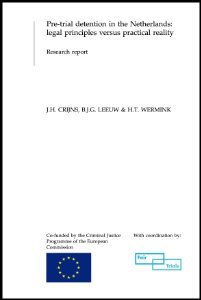By Chloe Anderson Golub, Cindy Redcross and Erin Jacobs Valentine
On January 1, 2017, the State of New Jersey implemented Criminal Justice Reform (CJR), a sweeping set of changes to its pretrial justice system. With CJR, the state shifted from a system that relied heavily on monetary bail to a system based on defendants’ risks of failing to appear for court dates and of being charged with new crimes before their cases were resolved. These risks are assessed using the Public Safety Assessment (PSA), a pretrial risk-assessment tool developed by Arnold Ventures with a team of experts. The PSA uses nine factors from an individual’s criminal history to produce two risk scores: one representing the likelihood of a new crime being committed, and another representing the likelihood of a failure to appear for future court hearings.
The PSA is used at two points in New Jersey’s pretrial process: (1) at the time of arrest, when a police officer must decide whether to seek a complaint-warrant (which will mean booking the person into jail) or issue a complaint-summons (in which case the defendant is given a date to appear in court and released); and (2) at the time of the first court appearance, when judges set release conditions for defendants who were booked into jail on complaint-warrants. (The DMF is also used at this second point.) CJR includes a number of other important components: It all but eliminated the use of monetary bail as a release condition, established the possibility of pretrial detention without bail, established a pretrial monitoring program, and instituted speedy-trial laws that impose time limits for case processing.
This report is one of a planned series on the impacts of New Jersey’s CJR. It describes the effects of the reforms on short-term outcomes, including the number of arrest events (where an “arrest event” is defined as all complaints and charges associated with a person on a given arrest date), complaint charging decisions, release conditions, and initial jail bookings.
New York: MDRC, 2019, 48p.







